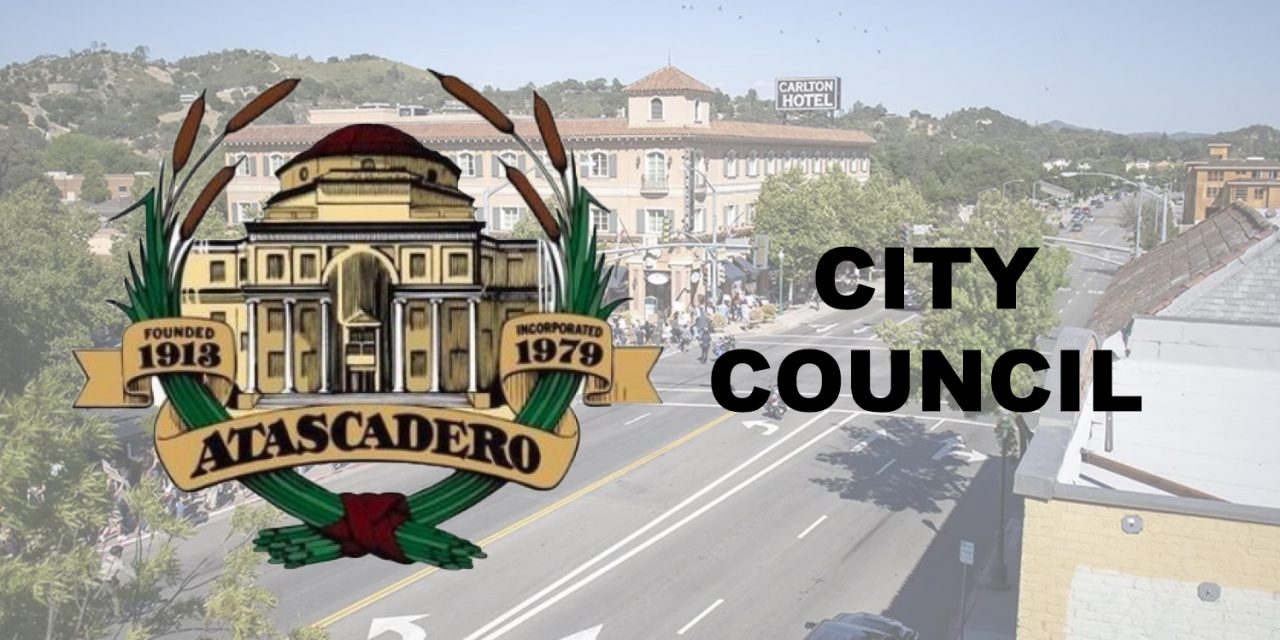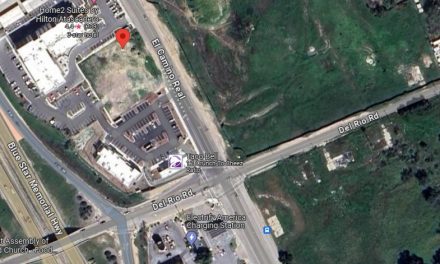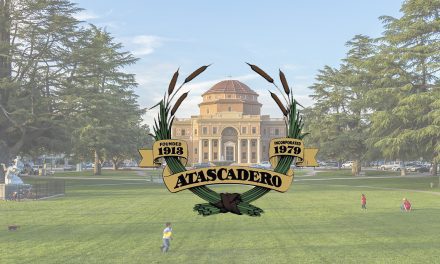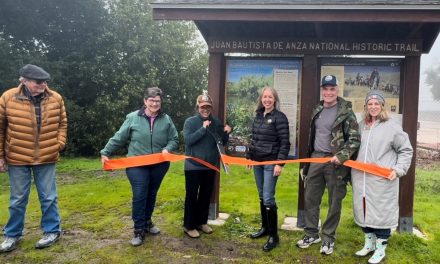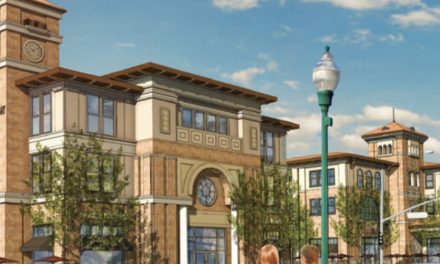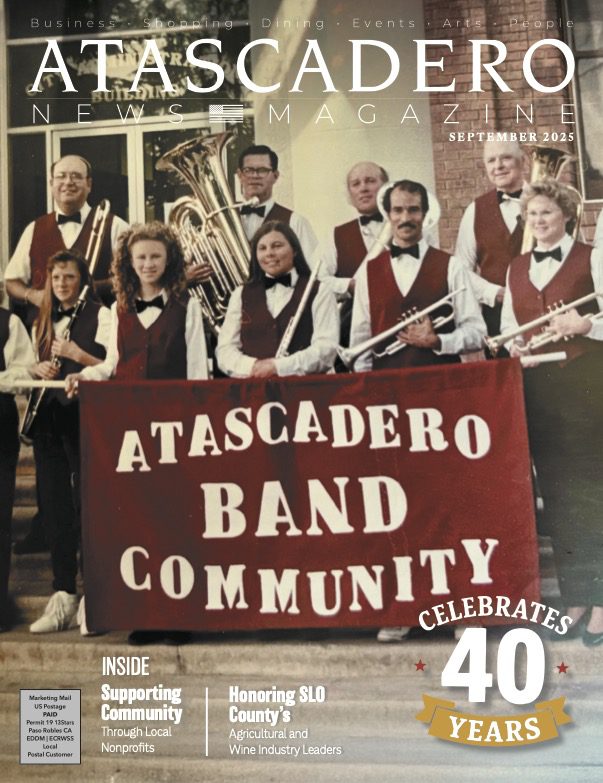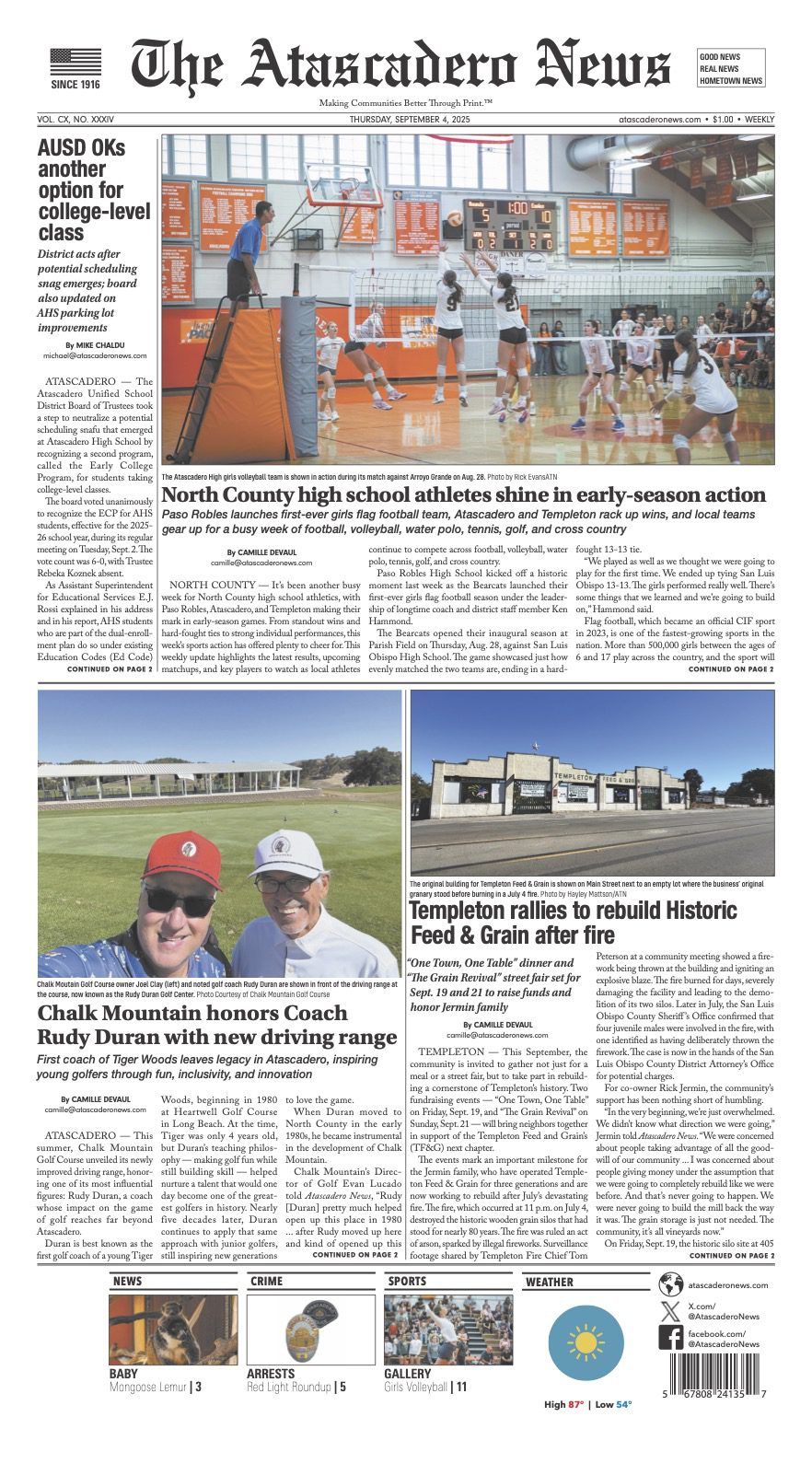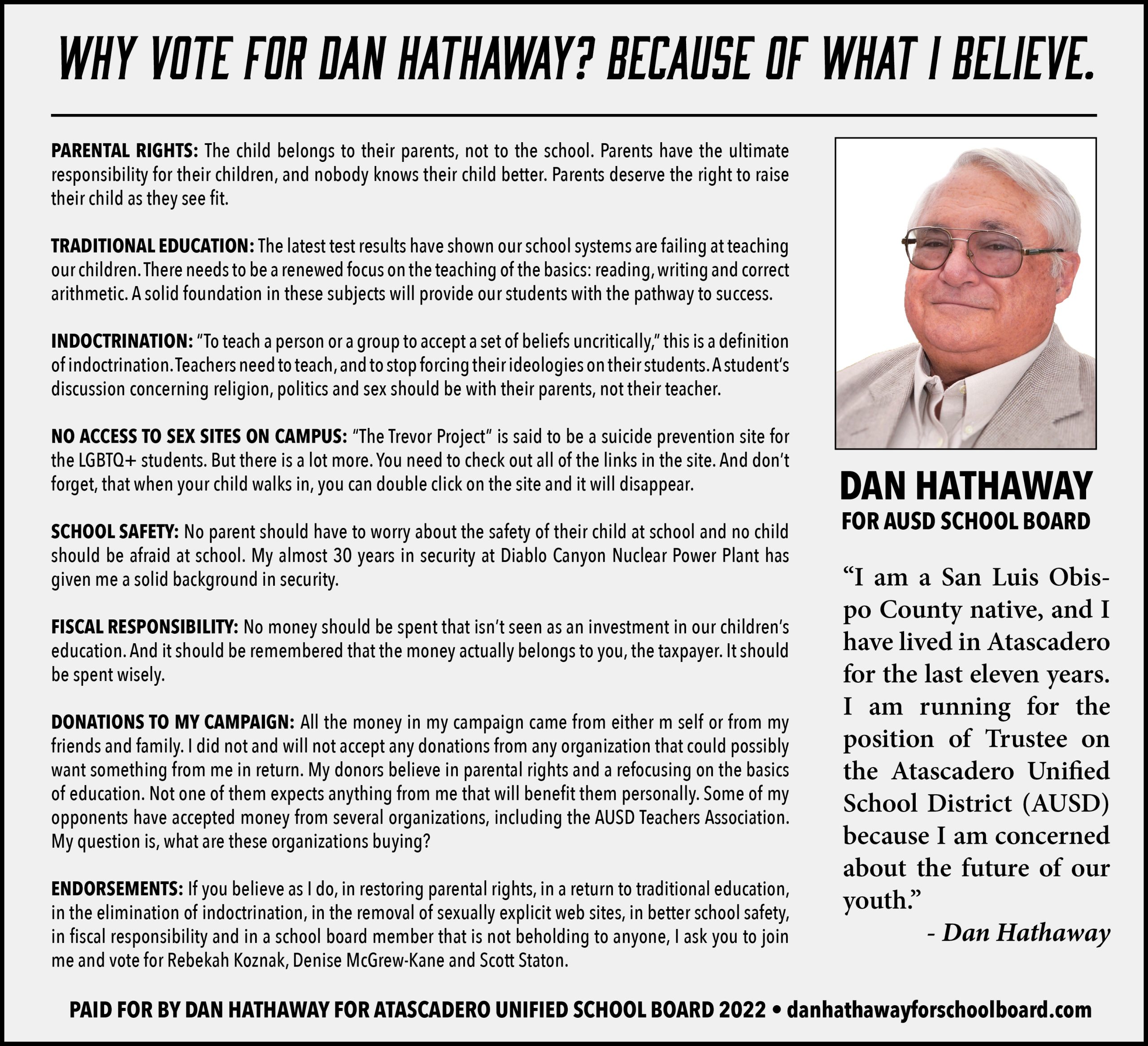A closer look at the legalities of public comment
ATASCADERO — The June 11 Atascadero City Council meeting has raised some questions in the community on what Community Forum is and how it is legally run, so Atascadero News reached out to Dave Fleishman, the city’s attorney, to clarify how the Community Forum works and the legality behind public comment, free speech, and the Brown Act.
“Very generally, free speech, as we refer to it, starts at the U.S. Constitution level with the First Amendment. That basically starts out with saying, ‘Congress shall make no law abridging the freedom of speech,'” Fleishman said. “California gets into a little bit more detail about how that gets exercised in the Brown Act. There is a provision in the Brown Act that allows people to attend a meeting and comment on items that are on the council’s agenda. There’s also a provision in the Brown Act that generally allows people to speak on items that are not on the agenda but are within the subject matter jurisdiction of the City Council.”
After Community Forum, the council is supposed to respond briefly to any comments brought up. However, since those items are not on the official agenda, they are not allowed to be discussed in detail. However, those items can be added to a future agenda if deemed necessary.
“It is a meeting of the City Council,” Fleishman said. “People will sometimes refer to it as a town hall meeting, but I tell people it’s more like the meeting of a board of directors of a corporation. There is business that needs to be done, but the Brown Act allows the shareholders, so to speak, the taxpayers, residents, businesses to attend and comment on the business of the board of directors.”
All subjects brought up during Community Forum during City Council meetings needs to pertain to subject matter juristiction under the council.
“The example that I use when I’m doing training is, if someone comes up and speaks at public comment about their concerns about the paving that’s being done by the public work’s crew, [that’s] clearly something that’s within the city’s subject matter jurisdiction,” stated Fleishman. “But if someone gets up at public comment and says, ‘I want to discuss what the referees did in last night’s NCAA basketball game, and I’m outraged about it,’ well, that’s not something that the City Council has any jurisdiction over. Can’t do anything. So that’s not something that’s really appropriate for the public comment under the Brown Act.”
At the June 11 meeting, three speakers made uncouth public comments via Zoom toward the city’s LBGTQ+ community in response to those same members requesting a proclamation supporting Pride Month and inviting the council to Atascadero’s first official pride event. The city changed its policy on July 1, 2023, and stopped issuing proclamations to any group and now only gives them to government services and city staff.
In regard to the intense comments made via Zoom, Fleishman did not stop the live stream of said comments until the last speaker went off topic and strayed into comments that no longer addressed Pride Month.
“I made the call on the fly that because there were people speaking in favor of a particular issue that was arguably within the City Council’s jurisdiction, in other words, a proclamation by the City Council. Those opposed to such a proclamation also have the ability to speak on that issue. That’s why it came down the way it did,” Fleishman said about what happened at the June 11 meeting.
Fleishman also said that Community Forum can also come to a halt when a comment or speech constitutes a disruption to the meeting and that the Brown Act, which has been around since the 1950s, does not require a continuation of that.
“That’s kind of the outside boundary on it, and I would say there’s no clear dividing line as to what constitutes a disruption, but when people are shouting, and it’s inhibiting the City Council’s ability to continue its meeting, that’s where it becomes a disruption,” he added.
As of the June 25 meeting, community members who could not make it to the City Council meeting could both watch the meeting via the city’s YouTube channel and the Zoom link, though the ability to participate in Community Forum via Zoom was no longer an option.
“Fundamentally, the city’s not obligated to provide a Zoom link,” said Fleishman. “During the pandemic, as a matter of necessity, to continue allowing people to exercise that right, some cities went to allowing comment by Zoom. That was not a legal obligation to do so; that was something that was done voluntarily by the public agencies and, to this day, is still something that cities are doing voluntarily. It’s not required by the Brown Act.”
At this time there is no clear answer as to if Zoom call-ins will be reinstated in future meetings as formal decisions on the city staff level had not been made at the time this article was printed.
For more information on council meetings, go to atascadero.org/council-meeting-information.

